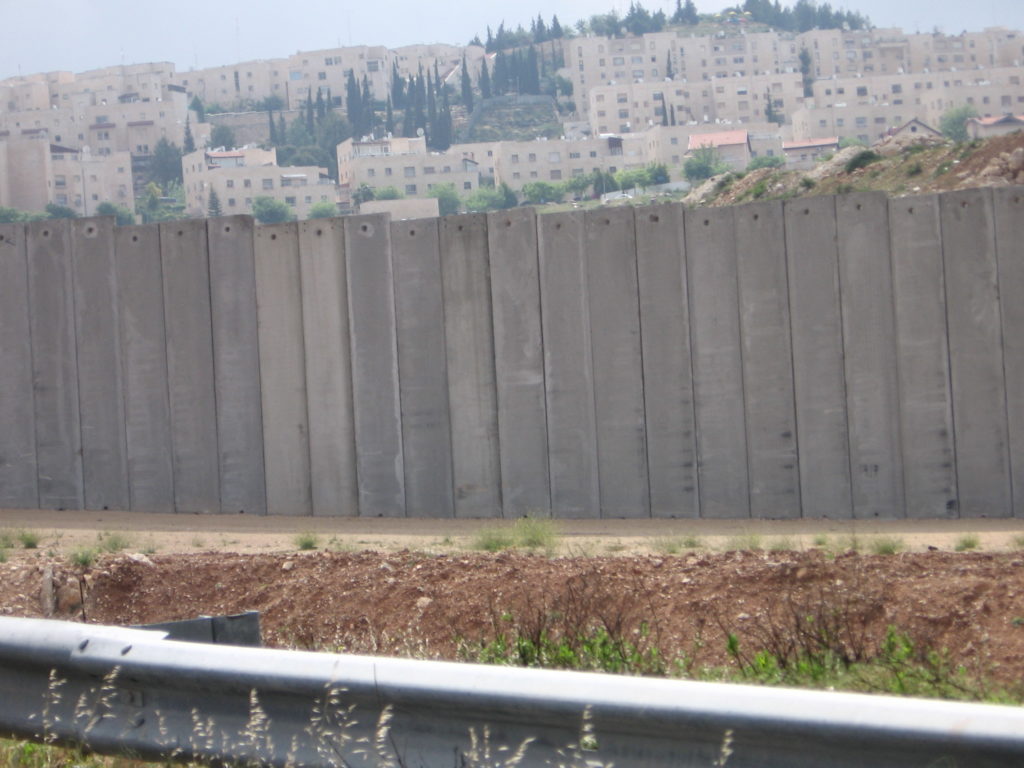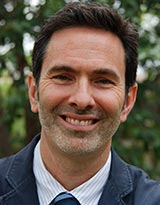Much has been said during the presidential campaign about the issue of immigration. We have heard about walls, deportation forces, open borders, paths to citizenship, and more. The question of immigration is finally a question about boundaries, identity, and control. What does it mean to be a nation? What is the status of national boundaries? How and why do we control passage across borders?

These questions can have various answers, but theologically we cannot answer them without considering what it means to be God’s people in the midst of the nations of the world, what it means that our citizenship is in heaven (Phil 3:20) and therefore only in a derivative and secondary way is our citizenship aligned with a particular set of national boundaries.
Karl Barth, the twentieth century Swiss theologian, wrestled with the question of insiders and outsiders, neighbors and strangers, as he wrote his Church Dogmatics amid the tumult of Europe in the 1930s and ’40s. In one particularly insightful and challenging section, Barth discusses the topic of “Near and Distant Neighbors” (CD, III/4). Notice the way he phrases the title of the section. He does not write about neighbors and strangers, as he is convinced that in Christ all have been made neighbors to us. The only difference is whether they are near or distant.
So from the start Barth asks us to see the immigrant, the stranger, the other, as a neighbor — not an alien or a criminal, not legal or illegal, but simply and profoundly neighbor.
Barth goes on to say that welcoming the stranger as a neighbor who is, like us, created by God and redeemed by Christ, means we will have to accept that “the concept of one’s own people is not a fixed but a fluid concept” (291). He goes on, “One’s own people in its location cannot and must not be a wall but a door. Whether it be widely opened or not, and even perhaps shut again, it must never be barred, let alone blocked up. The one who is really in his own people, among those near to him, is always on the way to those more distant, to other peoples” (294).
Barth’s sense of the fluidity of peoples and identities presents a stark contrast to some of the rhetoric of this election season. Following Barth’s lead, we might affirm that our identity as one nation, people, or language group does not constitute a stable fixture of creation that needs to be defended. Rather, it is a supple, flexible, and ever-changing identity.
Such cultural humility is what is necessary if we are faithfully to follow the God who tells Israel, “The alien who resides with you shall be to you as the citizen among you; you shall love the alien as yourself, for you were aliens in the land of Egypt” (Lev 19:34).
Barth further suggests that learning a foreign language is an act of discipleship: “Therefore if we are commanded to enter into communication with them, to hear them and speak with them, perhaps to read their books and newspapers,” which Barth believes we are, “we must make a linguistic sacrifice. We shall then try to understand and speak this foreign language to the best of our ability, and as we do so in this respect at least a section of the barrier, which seems at first invincibly to separate one nation from another will be removed, and even those who seem to be very distant will become relatively near. … Our own language must not be allowed to become a prison for ourselves and a stronghold against others” (291).
These words have given me a new way to think about and experience our bilingual Eucharist at Seminary of the Southwest every Tuesday. Now as I hear the Spanish words of the liturgy tumble over me (and often right past me), I do not feel frustration that the service is not in my language, nor do I feel guilty that I have yet to learn Spanish; I simply recognize that this is part of my linguistic sacrifice. This is part of how I slowly, over time, make a door where there was a wall. It is a way that I refuse to let my language become a prison or a stronghold. I am invited into a moment of cultural humility.
It is my hope that small gestures like bilingual services go some distance toward creating a cultural climate in which immigrants from our southern border are no longer seen as strangers or enemies, criminals or freeloaders, but as neighbors whom we are commanded to bring near.
How do you think about citizenship and borders in your life?
What small linguistic sacrifice might you make?
In your context, what walls need to be turned into doors?
 Scott Bader-Saye (@ScottBaderSaye) serves as academic dean and holds the Helen and Everett H. Jones Chair in Christian Ethics and Moral Theology at Seminary of the Southwest. He joined the faculty in 2009 after teaching for twelve years at the University of Scranton, a Jesuit university in Scranton, PA. His academic interests include political theology, sexual ethics, ecology/economy, and Jewish/Christian/Muslim dialogue.
Scott Bader-Saye (@ScottBaderSaye) serves as academic dean and holds the Helen and Everett H. Jones Chair in Christian Ethics and Moral Theology at Seminary of the Southwest. He joined the faculty in 2009 after teaching for twelve years at the University of Scranton, a Jesuit university in Scranton, PA. His academic interests include political theology, sexual ethics, ecology/economy, and Jewish/Christian/Muslim dialogue.

